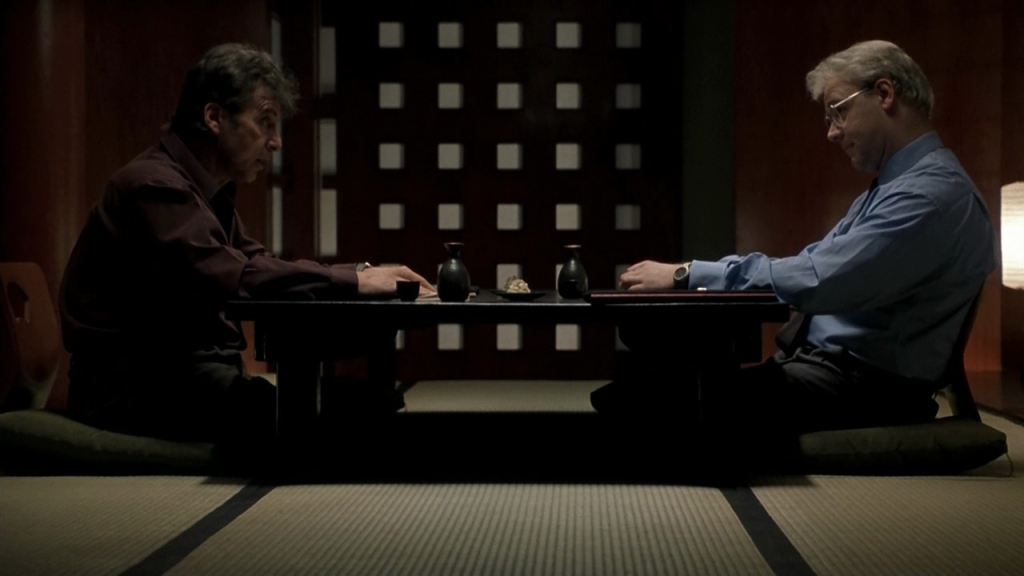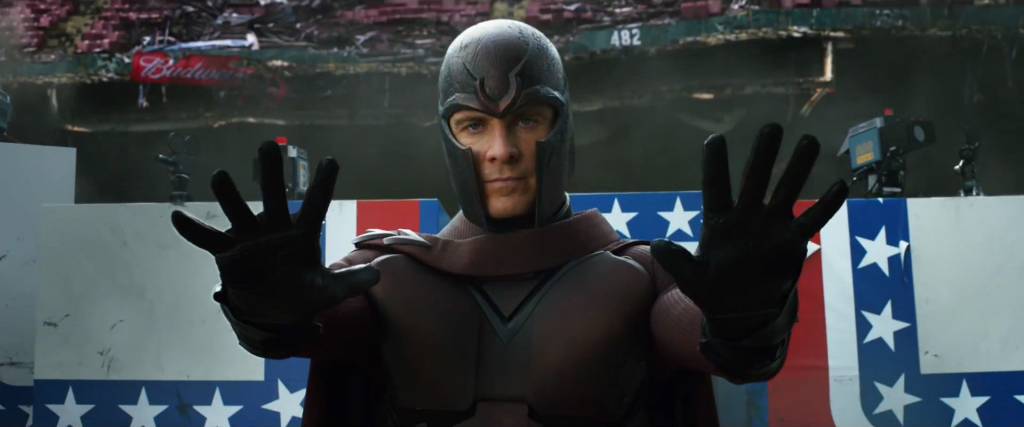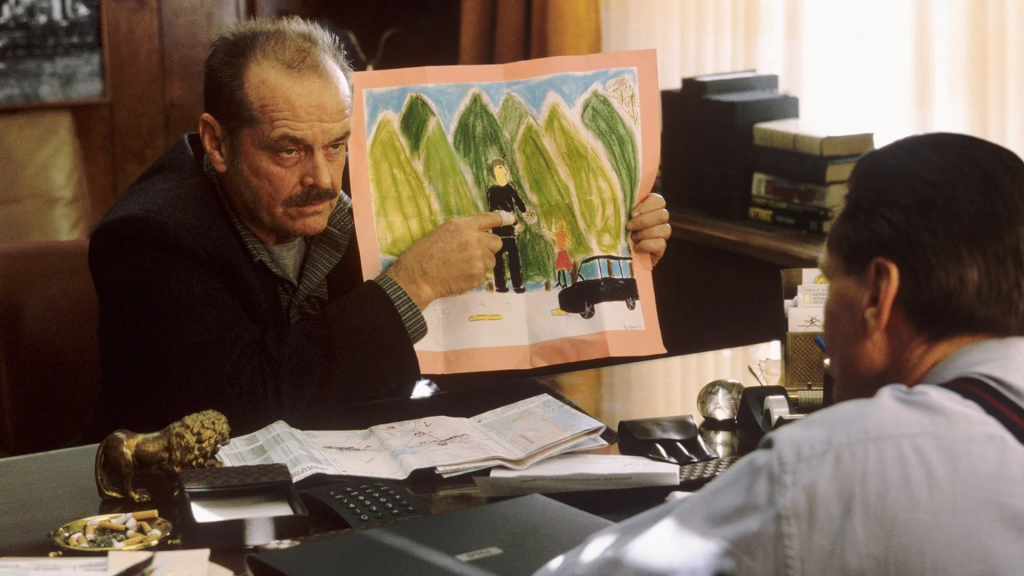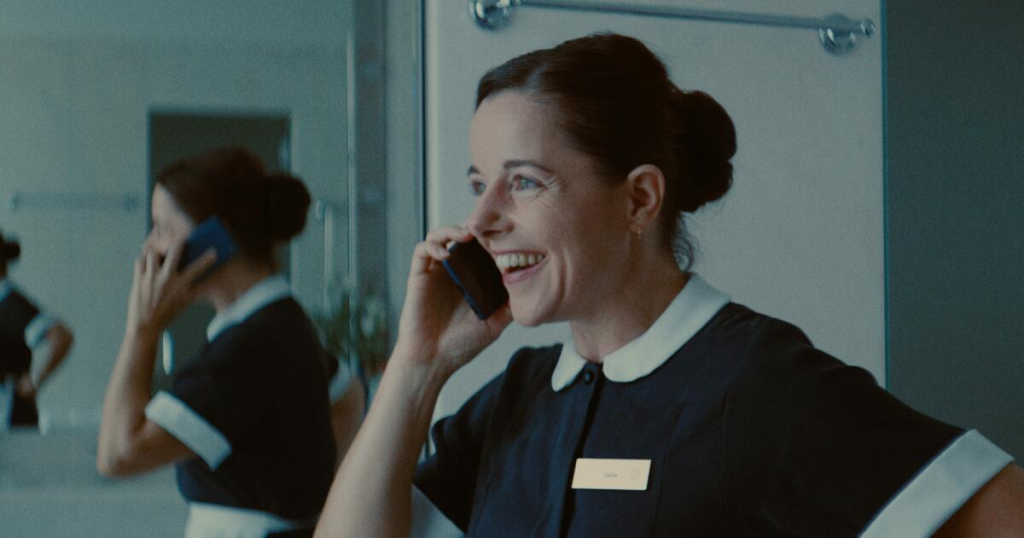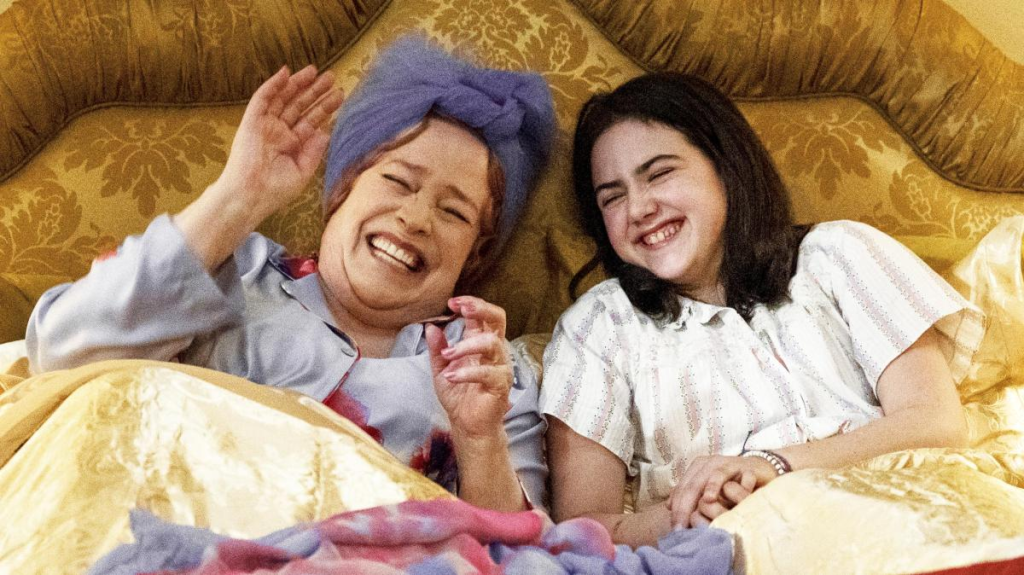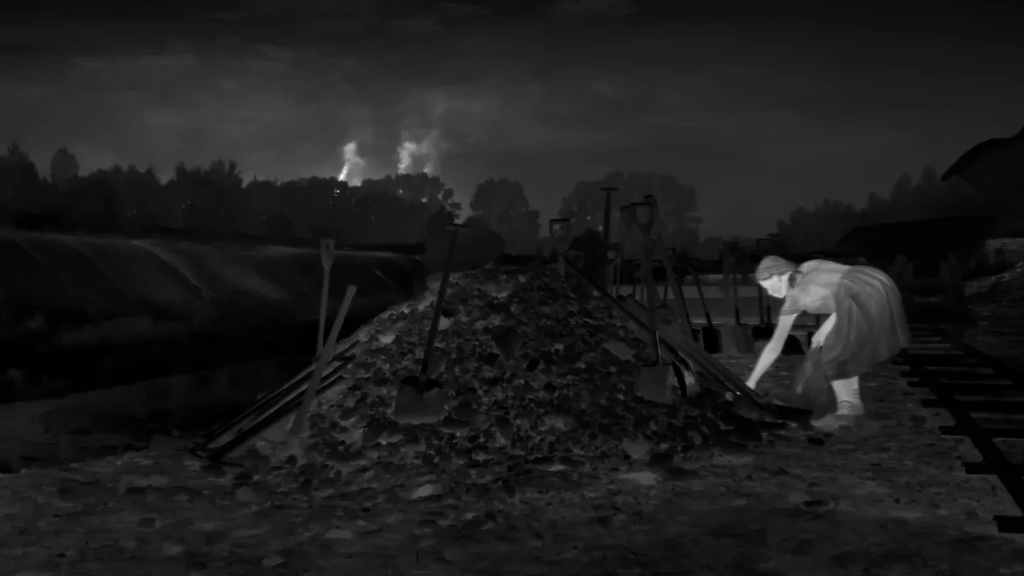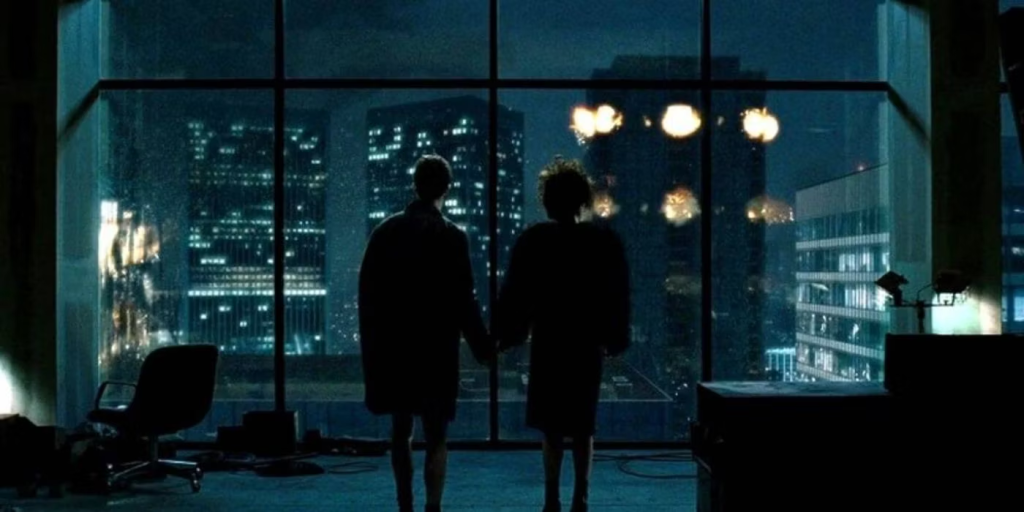The Insider (1999)
2.2.24 How do you cinematically portray people making life-changing, world-affecting decisions? Superbly shot and boasting impeccable recreations of the only 60 Minutes broadcast I’ve ever watched, The Insider reveals a chilling reality: how hard it is to tell a simple truth when ‘Big Tobacco’ wants it silenced. Three big-screen heavyweights fully showcase their capabilities here. First, Al Pacino intensely simmers as TV producer Lowell Bergman; a muted performance by his standards, yet still decent. Second, a youthful Russell Crowe delivers a subversive, beta-role as whistleblower Jeffrey Wigand, characterising the intelligence and weight of a man some 20 years his senior. But third and most impressively, Christopher Plummer fully chews the scenery as 60 Minutes’ charismatic host Mike Wallace. His casual authority and bulldog-like vigour belie Plummer’s near-70 years. In minor criticism, I would have preferred more focus on Plummer, as he has far less screen time than Pacino and Crowe, which is understandable considering how high their stock was in the late nineties after Heat and LA Confidential respectively. However, compared to those films, there’s little action here, despite no shortage of tension either, especially in the methodical first hour. It’s Michael Mann’s least physically violent film but due to the serious wide-reaching subject matter, it feels no less impactful. The most riveting moments seem mundane, Crowe and Pacino sitting in a Japanese restaurant on the floor with the camera flipping between sides of the room as the conversation becomes slowly more intense, as does their professional relationship. Meticulously edited, The Insider contains no dud shots, badly lit frames or dodgy focuses; everything is as it needs to be to get its point across. Undoubtedly long, yet absent of anything superfluous. Even the lone villain Michael Gambon’s repeated appearances feel compulsory, re-stating the coldness of corporate corruption. A film which reminds us that in real life, the biggest fiends are not those with fangs or claws, but the ones with global influence and mile-high piles of money to protect their interests from scrutiny.
The Insider (1999) Read More »
